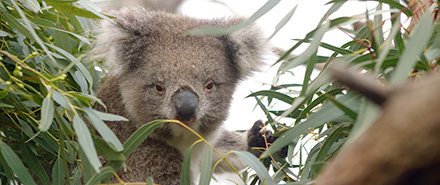The New South Wales State election is in full swing now, and up until this week it has been an extremely quiet affair.
Even the Sydney Morning Herald commented this week that people could be forgiven for not even realising there’s an election on 25 March.
Cost of living is of course at the front of everyone’s mind with inflation at the highest level in three decades, and after nine successive interest rate rises.
Housing affordability, shortages of teachers and healthcare staff are a key concern as is transport and infrastructure. Gambling reform policies could prove crucial.
While the environment gets a mention, forestry barely gets nod.
NSW Labor has announced that it will establish a Great Koala National Park if elected.
Labor has promised it will spend $80 million establishing the sanctuary, comprising existing national parks and state forests between Kempsey and Grafton.
NSW Environment Minister James Griffin has called Labor’s promise a “plan for a plan”, labelling it “embarrassing”.
Australian Forest Products Association NSW CEO Victor Violante said the park would result in the closure of the hardwood timber industry on the NSW Mid North Coast.
He said NSW forest industries were at the forefront of koala conservation, and that koala protections must be based on science and evidence.
The Australian Forest Contractors Association is cautioning the NSW Opposition about making any decisions that removes the effective management of forest areas by highly skilled operators.
The AFCA says the Opposition’s plan will mean increased uncertainty in the forestry sector and potentially a mass exit of skilled labour.
This week Timber NSW fired the big guns. Citing a new Ernst + Young report, Timber NSW said that plans for a Koala Park and “transitioning” native forestry to plantations are unnecessary and unworkable, threatening the livelihood of thousands of timber workers in the region. It said that science-based forest policies can achieve environmental aims while safeguarding local timber supply and local jobs.
Underscoring it all, the report shows that the NSW hardwood timber industry is vitally important to the State’s rural and regional economy, contributing $2.9 billion in revenue, adding $1.1 billion to NSW’s Gross Domestic Product and employing almost 9000 people.
It points out that hardwood timber generates wholesaling and processing jobs and supports tradesmen in regional centres and the Greater Sydney region.
They are powerful numbers. It is a powerful argument.
Yet opponents of native forestry want to place an additional 175,000 hectares of State Forest in North East NSW into the Koala Park and replace native forestry with plantations. Both these plans, says Timber NSW CEO, Maree McCaskill, are misguided and unfeasible.
The SMH says its most recent exclusive polling conducted by research company Resolve Strategic in late February showed that NSW Labor has a winning lead, with a primary vote of 38%. The Coalition’s primary vote is on 32%, down from the 42% secured when Gladys Berejiklian won in 2019. Other published polls paint a similar picture.
But the paper believes there is also a strong possibility the election will deliver a hung parliament, meaning the new government would have to rely on crossbench support to operate. It says the Coalition has spent the past two years governing without a formal majority, but if the ALP can snatch five or six seats from the Coalition, that may be enough for it to form government with the support of the Greens and independents.
And history – particularly in Victoria – tells us all how that will pan out for the native timber industry in NSW.







